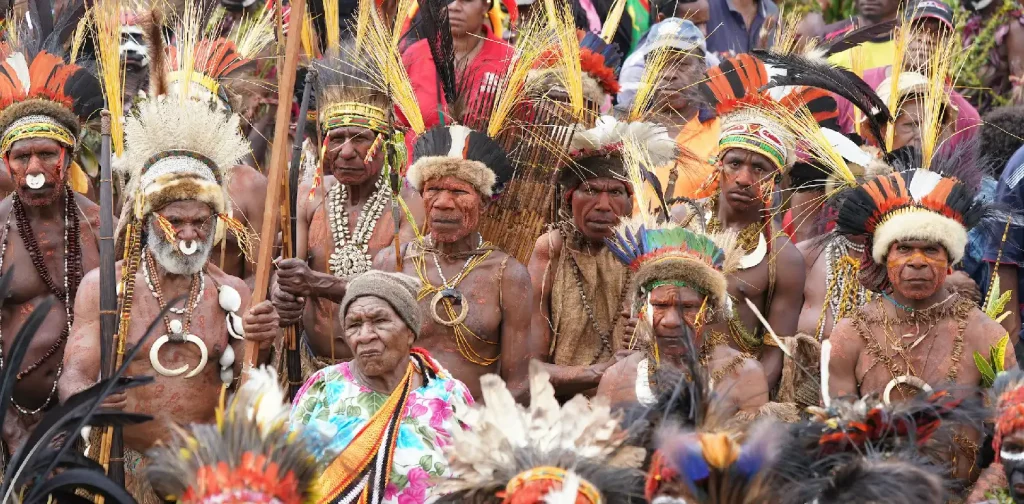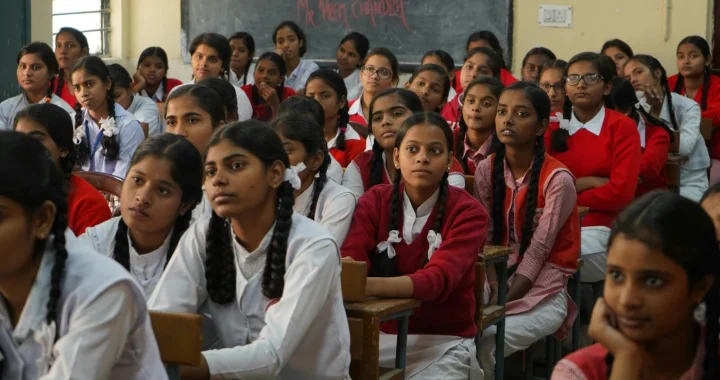Strengthening Legal Protection for Indigenous Peoples in Indonesia

Photo: Bob Brewer on Unsplash.
The concept of leaving no one behind in our pursuit of sustainable development seeks to protect marginalized groups who often face discrimination and injustice, including Indigenous Peoples. In Indonesia, there are 2,161 Indigenous Communities spread across the country’s archipelago. Unfortunately, Indigenous Peoples in Indonesia still struggle to achieve safe, healthy, and decent lives due to the lack of legal protections.
Indigenous Peoples in Indonesia
Indigenous Peoples have a crucial role in sustainable development. They possess essential wisdom to sustainably conserve and use natural resources, such as forest and ocean harvests, without causing environmental degradation. For example, Indigenous Peoples practicing the Sasi Ikan Lompa ritual in Maluku aim to conserve fish ecosystems within a specific time and area to avoid overfishing. The Sihaporas Indigenous Communities in North Sumatra also practice a similar tradition called Kolam Bombongan.
Furthermore, the management and utilization of forest yields done by Indigenous Peoples in Papua can maintain nature’s balance. They see forests as the mother earth, and other Indigenous territories as parts of the cosmos that merge with their spirituality.
Lack of legal protection
Modernization poses challenges to Indigenous Peoples’ livelihood. The stigma of being ‘too traditional’ causes Indigenous Peoples to often be denied their voices in policymaking. In Indonesia, one of the challenges is the lack of acknowledgment and legal protection for Indigenous Peoples, making them more vulnerable to threats. Consequently, they are losing their lands and facing violence and criminalization.
The government’s lack of acknowledgment of Indigenous forests increases the chances of Indigenous lands eviction. As of March 2022, the Ministry of Environment and Forestry had released 89 decision letters acknowledging 89,783 hectares of Indigenous forests. The number only accounts for 0.65% of the potential areas of 13.76 million hectares, according to data by Badan Registrasi Wilayah Adat (Indigenous Territory Registration Agency).
Indigenous Communities still face eviction and criminalization. In the first month of 2020, an estimated 1,488 hectares of Indigenous forests in Papua vanished with 40 criminalization and violence cases. Most cases were the continuation of the previous years’ unfinished issues.
From 2022 until the middle of 2022, the National Commission on Violence Against Women also received 13 reports regarding the conditions of Indigenous women amidst natural resources-related conflicts across the country.
Bill for Indigenous Peoples
Indigenous Peoples need more robust legal protections, and the bill for Indigenous Peoples raises hope for it. The bill was proposed and discussed between the 2014-2019 period and approved during the legislation meeting in 2020. It involves acknowledgment, protection, empowerment, Ulayat Rights, justice, and equality clauses. Unfortunately, the bill has yet to be passed into law until now.
Ultimately, strengthening the protection of Indigenous Peoples requires support from different aspects. Besides strict law, it needs support from genuine, impactful, sustainable policies, programs, and initiatives. Of course, this calls for active participation from all stakeholders, especially the Indigenous Peoples. Because the future of Indigenous Peoples and their environment is our future, too.
Translator: Kresentia Madina
Read the original article in Indonesian at Green Network Indonesia.

Co-create positive impact for people and the planet.
Amidst today’s increasingly complex global challenges, equipping yourself, team, and communities with interdisciplinary and cross-sectoral insights on sustainability-related issues and sustainable development is no longer optional — it is a strategic necessity to stay ahead and stay relevant.
Maulina Ulfa
Ulfa is a Reporter at Green Network Asia. She graduated from Jember University with a bachelor's degree in International Relations.


 India’s Supreme Court Declared Menstrual Health and Hygiene as Fundamental Rights
India’s Supreme Court Declared Menstrual Health and Hygiene as Fundamental Rights  Impacts of E-waste Pollution on Animals and Human Health
Impacts of E-waste Pollution on Animals and Human Health  Africa’s Solar Energy Surge: Why 2025 Was a Breakthrough Year
Africa’s Solar Energy Surge: Why 2025 Was a Breakthrough Year  Agrihoods: Integrating Farms and Urban Neighborhoods into Sustainable Communities
Agrihoods: Integrating Farms and Urban Neighborhoods into Sustainable Communities  Women in Waste Management: Asia’s Circularity Runs on Women. Its Policies Still Don’t
Women in Waste Management: Asia’s Circularity Runs on Women. Its Policies Still Don’t  Embracing the Business Value of Sustainability
Embracing the Business Value of Sustainability